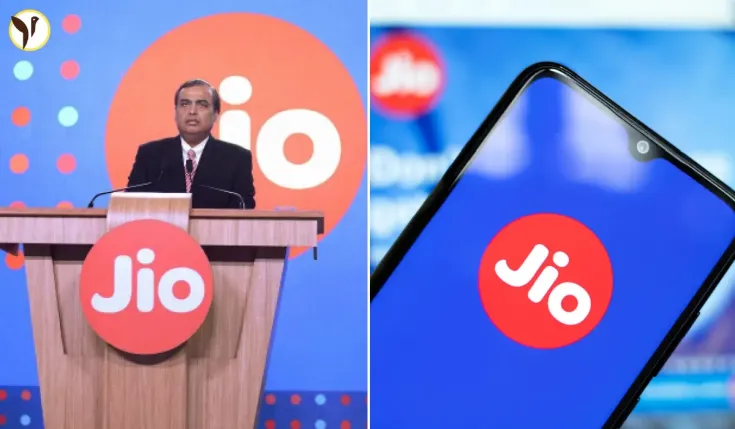Significant opposition to Reliance Jio has surfaced in India in recent weeks, sparking calls for a boycott of the massive telecom company. Many complaints and concerns expressed by customers have given rise to a growing movement on social media.
Unhappiness with Jio's service quality is one of the main causes of the boycott Jio. Frequent network disruptions, slow internet speeds, and unstable connectivity have angered a lot of consumers. Although Jio initially successfully provided affordable mobile data to a wider audience, users believe that the business has not been able to uphold consistent service standards. These problems have been exacerbated by inadequate customer service and unanswered complaints, leading many people to look for alternatives.
The time has come to boycott Jio.
— Dhruv Rathee (Parody) (@dhruvrahtee) July 5, 2024
Mukesh Ambani is conducting wedding of his son every month and recovering this money from poor people by increasing the recharge plans.#BoycottJio - everyone use this hashtag in comments and Retweet this MAX. pic.twitter.com/m4jhgl80LN
Supporters of the boycott have also expressed serious worries about privacy and data security. Concerns concerning Jio's handling and security of customer data are increasing as more services go digital. Alarms have been raised by claims of data breaches and insufficient security measures for sensitive data. In order to protect their sensitive data from potential cyber threats and misuse, users are putting additional pressure on Jio to implement stronger data security measures and increase transparency.
The boycott movement expresses deeper socio-political concerns beyond concerns about privacy and services. Reliance Jio is a division of Reliance Industries, which is controlled by Mukesh Ambani, one of the most well-known businesspeople in India.
Critics contend that the conglomerate's broad sectoral influence may result in monopolistic behavior and impede free and fair competition in the market. Calls for greater corporate accountability and moral governance have also been sparked by worries about the company's political ties and their effect on policy decisions.
Reliance Jio recently announced a price hike across its mobile tariffs, marking an adjustment after years of offering competitive rates that disrupted India's telecom market. The price increase affects prepaid plans, with customers now paying slightly more for data and voice services. This move aims to improve profitability amid rising operational costs and investments in network infrastructure.
Jio remains committed to providing affordable services but acknowledges the need for sustainable pricing to ensure continued service quality and expansion. The price adjustment reflects ongoing market dynamics and the company's strategy to maintain competitiveness while meeting financial objectives.
Boycott Jio has put pressure on Jio to take these complaints seriously. As a result, the business has pledged to enhance data security protocols, improve customer support systems, and upgrade service infrastructure. The goals of these programs are to reduce consumer fears and win back the trust of boycott Jio advocates. However, the success of these initiatives depends on Jio's capacity to satisfy its user base and restore confidence by offering real upgrades.
मुफ्त नेट देकर पहले लोगों को आदत लगाई, अब जियो 10 गुना वसूली कर रहा है। टेलीकॉम बाजार में कंपनियों की यह मनमानी लूट नहीं चलने देंगे। #BoycottJio pic.twitter.com/3P5HtQauNk
— Hansraj Meena (@HansrajMeena) July 6, 2024
The Boycott Jio movement underscores the evolving dynamics of consumer activism and corporate responsibility in India's digital age. It highlights the power of social media. Moving forward, the outcome of this movement will depend on Jio's ability to implement meaningful reforms, uphold transparency, and prioritize user satisfaction.
As consumers continue to demand higher standards of service and integrity, companies like Jio face a critical test of their commitment to meeting these expectations while navigating the complexities of a competitive market landscape.







